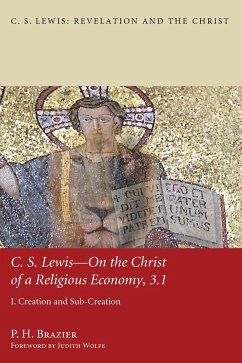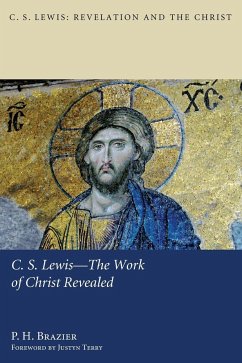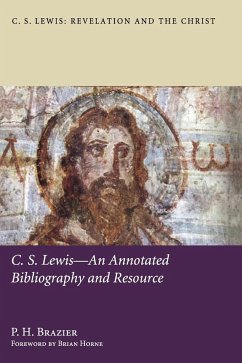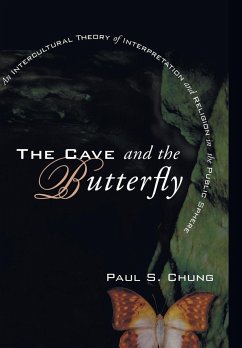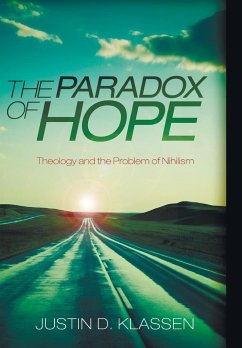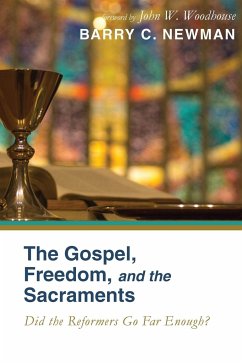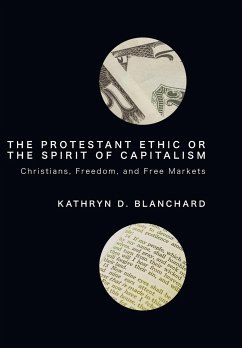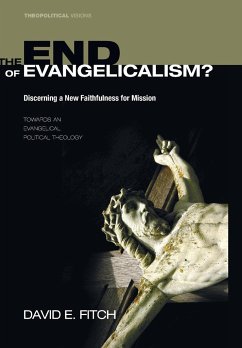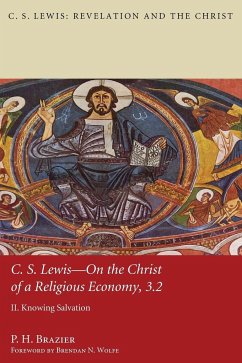
C.S. Lewis-On the Christ of a Religious Economy, 3.2
Versandkostenfrei!
Versandfertig in über 4 Wochen
65,99 €
inkl. MwSt.

PAYBACK Punkte
33 °P sammeln!
C. S. Lewis--On the Christ of a Religious Economy. II. Knowing Salvation, opens with a discussion of the Anscombe-Lewis debate (the theological issues relating to revelation and reason, Christ the Logos). This leads into Lewis on the Church (the body of Christ) and his understanding of religion: how is salvation enacted through the churches, how do we know we are saved? This concludes with, for Lewis, the question of sufferance and atonement, substitution and election, deliverance and redemption: heaven, hell, resurrection, and eternity--Christ's work of salvation on the cross. What did Lewis ...
C. S. Lewis--On the Christ of a Religious Economy. II. Knowing Salvation, opens with a discussion of the Anscombe-Lewis debate (the theological issues relating to revelation and reason, Christ the Logos). This leads into Lewis on the Church (the body of Christ) and his understanding of religion: how is salvation enacted through the churches, how do we know we are saved? This concludes with, for Lewis, the question of sufferance and atonement, substitution and election, deliverance and redemption: heaven, hell, resurrection, and eternity--Christ's work of salvation on the cross. What did Lewis say of humanity in relation to God, now Immanuel, God with us, incarnate, crucified, resurrected, and ascended for humanity? What of Lewis's own death, and that of his wife? What does this tell us about the triune God of Love, who is Love? This volume forms the second part of the third book in a series of studies on the theology of C. S. Lewis titled C. S. Lewis: Revelation and the Christ. The books are written for academics and students, but also, crucially, for those people, ordinary Christians, without a theology degree who enjoy and gain sustenance from reading Lewis's work. www.cslewisandthechrist.net ""Paul Brazier has given us something new . . . a full account of Lewis's theology, set out in systematic order, with attention paid to the developments in his thought and to his biography."" --Stephen R. Holmes, Senior Lecturer in Systematic Theology, University of St. Andrews, Scotland ""Readers of C. S. Lewis will welcome this patient and penetrating analysis of the Christian vision he elaborated and communicated. Paul Brazier shows expertly how Lewis held reason and revelation together when deploying the Scriptures and mythology in constructing an imaginative apologetic for faith in Christ, the Revealer and Redeemer who leads us through grace to glory."" --Gerald O'Collins, Professor emeritus, Gregorian University, Rome ""Much has been written about the Lewis-Anscombe debate, but Brazier succeeds in putting this exchange of ideas in perspective. His thorough analysis of Lewis's philosophical education not only places this debate in another light, but also offers new perspectives on the whole body of Lewis's writings. In addition, this volume offers a timely in-depth study of Lewis's thoughts on the church and an eminently useful exposition of Lewis on the 'last things.'"" --Henk van Wingerden, Minister of the Hervormde Gemeente, Protestant Church of the Netherlands, The Netherlands ""I have not found a more comprehensive, exciting, and fresh study of Lewis's theology than Paul Brazier's work. This is a delightful study of Lewis the philosophical theologian, litterateur, and evangelist. With abounding summaries, definitions of terms, illustrations, and a detailed index, this work is indispensable to all readers of Lewis."" --Salwa Khoddam, Professor of English emerita, Oklahoma City University, Oklahoma P. H Brazier is an independent theologian and scholar living in London. He is the author of Barth and Dostoevsky (2008), and editor of the late Colin E. Gunton's The Barth Lectures (2007) and Revelation and Reason (2009).





